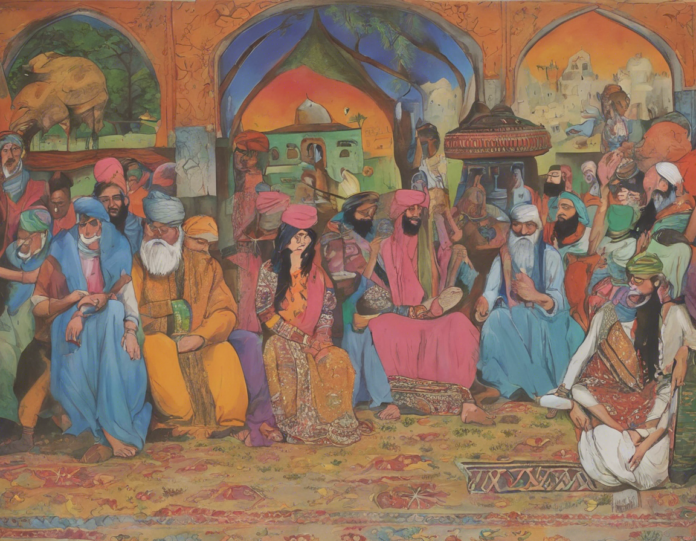Introduction
In the world of Urdu poetry, the magnum opus Shikwa and its sequel Jawab-e-Shikwa by renowned poet Allama Iqbal hold a revered place. These works are not only significant in the realms of literature but also resonate deeply with philosophical and spiritual themes. In this article, we will delve into a comprehensive literary analysis of Shikwa and Jawab-e-Shikwa, exploring their themes, stylistic devices, historical context, and enduring relevance.
Historical Context
Allama Iqbal, often referred to as the “Poet of the East,” penned Shikwa in 1909 and its response, Jawab-e-Shikwa, in 1913. The poems were written during a period of profound socio-political change in the Indian subcontinent under British colonial rule. Iqbal used these works to address the plight of the Muslim community, urging them to awaken from their slumber and strive for self-improvement and empowerment.
Themes in Shikwa
Shikwa, translated as “The Complaint,” is a poem in which the poet articulates the grievances of the Muslim community and questions the injustices they face. The central theme of Shikwa revolves around the poet’s lament over the perceived abandonment of the Muslim Ummah by God. Iqbal utilizes vivid imagery and emotional language to convey the sense of betrayal felt by the oppressed.
The poem delves into the themes of faith, resilience, and hope, urging Muslims to rise above their circumstances and reclaim their dignity. Iqbal challenges the community to introspect and take responsibility for their own destiny, emphasizing the power of self-reliance and action.
Stylistic Devices
Iqbal’s poetic style in Shikwa is characterized by its lyrical beauty, rhythmic flow, and rich symbolism. The use of Persian and Arabic words enhances the grandeur and depth of the language, infusing the verses with a sense of mysticism and spirituality. The poem is structured in the form of a complaint addressed directly to God, creating a powerful dialogue between the poet and the divine.
Themes in Jawab-e-Shikwa
Jawab-e-Shikwa, meaning “The Response to the Complaint,” serves as a rebuttal to the grievances expressed in Shikwa. In this poem, Iqbal presents God’s response to the complaints of the Muslim community, offering guidance, counsel, and reassurance. The central theme of Jawab-e-Shikwa revolves around the concept of divine mercy and forgiveness, highlighting God’s infinite compassion and grace.
Iqbal emphasizes the importance of faith and surrender to the divine will, urging Muslims to trust in God’s wisdom and justice. The poem serves as a call to action, inspiring the community to rededicate themselves to righteousness and virtue.
Relevance Today
Despite being written over a century ago, the themes explored in Shikwa and Jawab-e-Shikwa remain highly relevant in today’s world. The poems address universal questions of suffering, doubt, and redemption, offering profound insights into the human condition. The message of self-reflection and transformation resonates across cultures and creeds, serving as a timeless reminder of the power of faith and resilience.
Conclusion
In conclusion, Shikwa and Jawab-e-Shikwa by Allama Iqbal stand as monumental works of Urdu literature that transcend time and space. Through their profound themes, lyrical beauty, and philosophical depth, these poems continue to captivate readers and provoke contemplation. By delving into the historical context, themes, and stylistic devices of these works, we gain a deeper appreciation for the genius of Allama Iqbal and the enduring relevance of his poetry.
FAQs
- What is the central theme of Shikwa?
-
The central theme of Shikwa revolves around the poet’s lament over the perceived abandonment of the Muslim Ummah by God.
-
What does Jawab-e-Shikwa focus on?
-
Jawab-e-Shikwa serves as a response to the grievances expressed in Shikwa, highlighting themes of divine mercy and forgiveness.
-
What is the historical context of these poems?
-
Allama Iqbal penned Shikwa in 1909 and Jawab-e-Shikwa in 1913, during a period of socio-political change in British colonial India.
-
How does Iqbal’s poetic style enhance the impact of Shikwa and Jawab-e-Shikwa?
-
Iqbal’s use of lyrical beauty, rich symbolism, and rhythmic flow enhances the emotional and philosophical depth of these poems.
-
What is the enduring relevance of Shikwa and Jawab-e-Shikwa in contemporary times?
- The themes of faith, resilience, and self-reflection explored in these poems continue to resonate with readers across cultures, offering timeless insights into the human experience.

